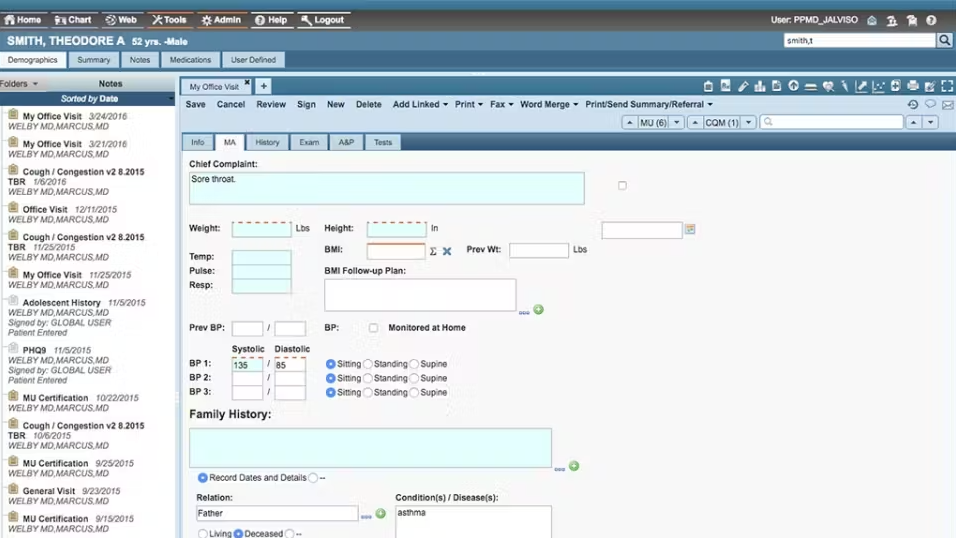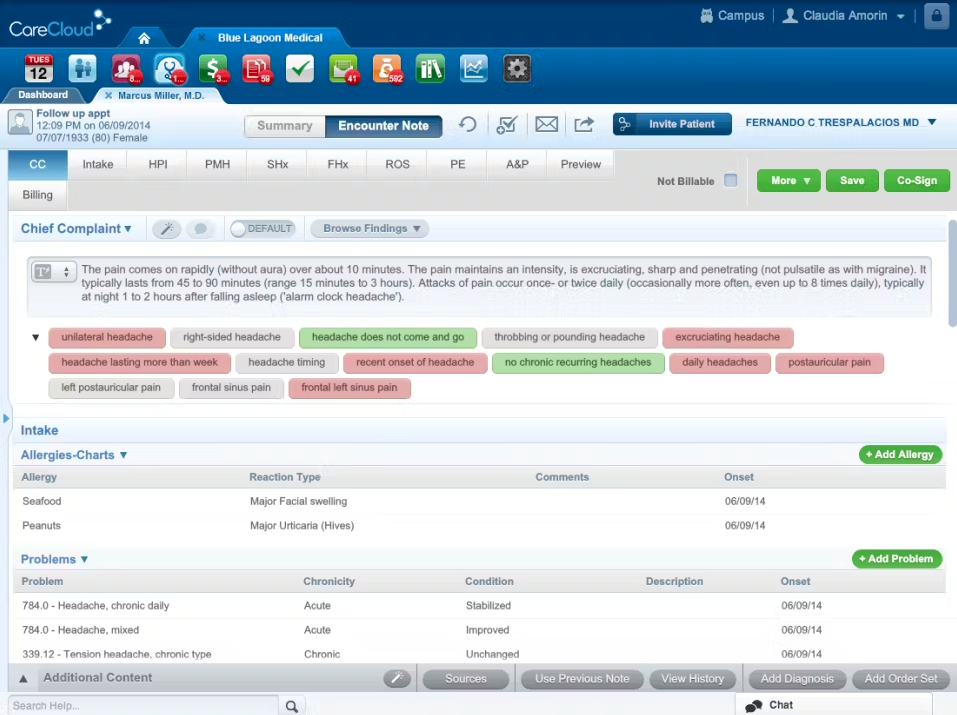With so many options available, choosing the right healthcare technology platform can be daunting. AdvancedMD and CareCloud offer distinctive features and functionality tailored to modern healthcare needs.
This article will shed light on what sets these two platforms apart, guiding medical practices toward the best fit for their specific operational and technological requirements. We’ll explore the critical differences, pricing structures, and intended user groups to provide a clear perspective on AdvancedMD and CareCloud.
A side-by-side look
AdvancedMD is renowned for its comprehensive software suite, which encompasses practice management, Electronic Health Records (EHR), and telemedicine. It stands out for its extensive customization capabilities and deep and flexible functionality.
CareCloud, on the other hand, shines with its user-friendly approach. It also covers EHR, practice management, and billing solutions. While it offers customization, it’s more accessible, catering to practices seeking straightforward, easy-to-navigate solutions.
Both platforms offer seamless integration with third-party applications to enhance billing, patient management, analytics, and other features — ensuring practitioners can maintain a connected and efficient ecosystem.
Balancing cost and features
When it comes to pricing, both AdvancedMD and CareCloud follow a tiered model, and both require potential customers to get a custom quote.
In-depth analysis of pros and cons
AdvancedMD
Pros
- Comprehensive feature set: AdvancedMD’s robust offerings cater to various aspects of medical practice management, making it a one-stop solution for many complex needs.
- High customizability: The platform excels in allowing users to tailor it to their specific operational requirements, offering flexibility that can significantly enhance workflow efficiency.
- Advanced integration: It seamlessly integrates with many healthcare applications, enabling a more connected and efficient practice environment.
- Telemedicine support: AdvancedMD includes telemedicine functionality, an essential feature in the modern healthcare landscape.
Cons
- Learning curve: The platform’s extensive features and customization options come with a steep learning curve, potentially requiring more time and resources for staff training.
- Cost consideration: With its advanced capabilities, AdvancedMD might be on the higher end of the pricing spectrum, especially for smaller practices.
- Complex customization process: While customization is a strength, the complexity and time required to configure the system can be a drawback for practices with limited technical expertise.
CareCloud
Pros
- User-friendly interface: CareCloud is known for its intuitive and easy-to-navigate interface, reducing the time needed for staff training and adaptation.
- Streamlined billing solutions: Its billing solutions are straightforward, enhancing the efficiency of financial operations within practices.
Cons
- Limited customization: Compared to AdvancedMD, CareCloud offers fewer customization options, which might be a limiting factor for practices requiring highly tailored workflows.
- Scalability concerns: The simplicity of CareCloud might not meet the complex needs of larger or more specialized medical practices.
Target audiences: Who benefits the most?
AdvancedMD is ideal for larger practices or those needing high customization and integration. It’s suited for users willing to invest time in learning the system to leverage its full potential.
CareCloud appeals more to small to medium-sized practices, prioritizing ease of use and quick setup. It’s a good fit for those who need an effective, straightforward solution without the complexities of extensive customization.
Both AdvancedMD and CareCloud offer powerful tools for healthcare management, and each has unique strengths. The decision hinges on the specific needs, size, and technical proficiency of the healthcare provider.
Practice management with Jotform
Jotform is a great tool that can enhance the capabilities of platforms such as AdvancedMD and CareCloud. Its strength lies in its diverse range of medical forms, including telehealth forms. Jotform also offers features that help with HIPAA compliance for users on Gold and Enterprise plans, so you can rest assured that patient data is protected.
Gathering information and feedback from patients is seamless with Jotform. You can streamline patient onboarding with custom intake forms, while feedback surveys help you gauge patient satisfaction, and registration forms simplify the enrollment process.
With an array of integrations, Jotform makes it easy to send the data you collect to other apps. You can use Jotform’s form solutions to improve data management and complement the robust features of tools like AdvancedMD and CareCloud for an efficient and patient-centric healthcare practice.
Photo by Tima Miroshnichenko








































































































Send Comment: